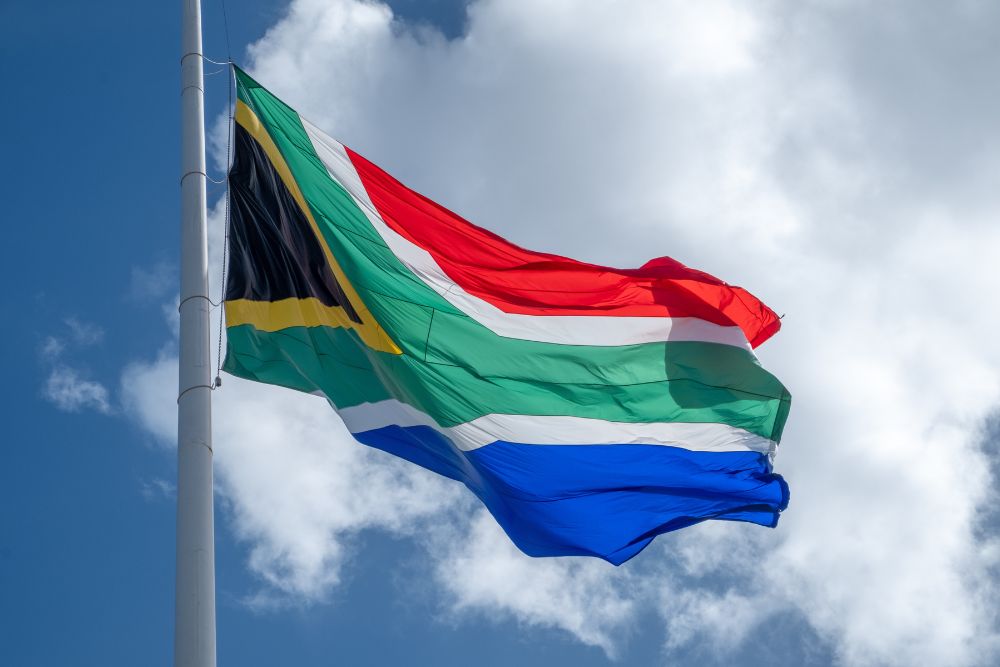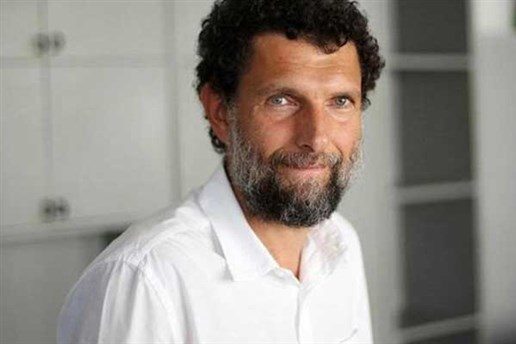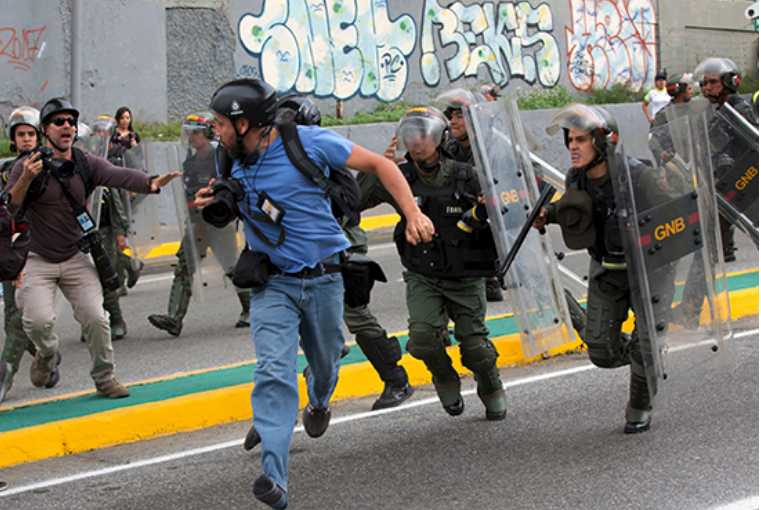
Feb 5, 2021 | Advocacy, Non-legal submissions
Today, the ICJ joined several human rights NGOs to stand in solidarity with Venezuelan NGOs subject to threats, harassment, attacks, restrictions, reprisals and criminal proceedings by State authorities.
The joint statement reads as follows:
The recent, ongoing and unwarranted detention of five members of the Venezuelan NGO ‘Azul Positivo’ is one more event in a series of threats, harassment, attacks, restrictions, reprisals and criminal proceedings against Venezuelan civil society organizations and human rights defenders, which has been intensifying since November 2020.
In recent months and weeks, state agents have forcibly entered the offices of civil society organizations; public threats have been made against defenders who have been engaging with human rights mechanisms, NGO bank accounts have been frozen and arrest warrants issued for aid workers.
Venezuelan civil society operate in a context of serious legal and administrative obstacles with domestic laws used to target human rights defenders, such as the ‘Law Against Hate’, or having the effect of limiting the operations of NGOs and restricting their access to funding, essentially blocking the work of many organizations vital for Venezuelans in need.
In a public statement, a number of UN independent human rights experts and regional experts have described threats and measures taken against Venezuelan civil society since November 2020 as amounting to ‘systematic persecution and stigmatization.’
It is essential that humanitarian and human rights organizations responding to the grave humanitarian and human rights crises in the country, pushing for accountability for violations and abuses and the return of guarantees provided by democratic institutions and processes are able to do their work without fear or hindrance.
Human rights defenders are critical, constructive and essential to democracies and the functioning of the rule of law. Attempts to silence and cow them are counterproductive and shameful.
We urge the Venezuelan authorities to ensure that harassment and threats against Venezuelan defenders stop and for all international legal guarantees to be respected.
We call on all states and UN bodies and agencies to actively support civil society organizations, defenders and activists and to speak up loudly and consistently for the right to defend human rights in Venezuela and globally.
We are inspired by the daily commitment and courage of Venezuelan human rights defenders and humanitarian workers and stand in solidary with our Venezuelan partners and friends.
Signatories:
- Amnesty International
- Center for Justice and International Law (CEJIL)
- CIVICUS
- Civil Rights Defenders
- Conectas Diretos Humanos
- Freedom House
- Global Centre for the Responsibility to Protect
- Human Rights Watch
- International Commission of Jurists
- International Service for Human Rights
- People in Need
- Washington Office on Latin America (WOLA)
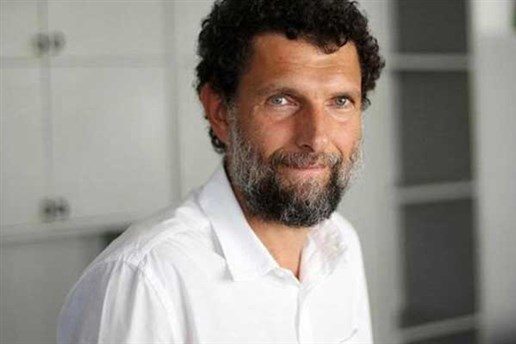
Jun 3, 2020 | Advocacy, Cases, Legal submissions
The Council of Europe Committee of Ministers should issue a decision at its 4 June 2020 meeting directing Turkey to release the human rights defender Osman Kavala and drop all charges against him, the ICJ, Human Rights Watch and the Turkish Human Rights Litigation Support Project said today.
The three groups have submitted a detailed submission to the Committee of Ministers of the Council of Europe, which oversees enforcement of European Court of Human Rights judgments. The groups outlined how Turkey continues to violate Kavala’s rights by flouting a landmark judgment, that became final on May 11 requiring his immediate release.
“The European Court ruled that Kavala’s detention is unlawful, and their binding judgment requires Turkey to release him immediately,” said Emma Sinclair-Webb, Turkey director at Human Rights Watch. “The Committee of Ministers, at its June 4 meeting, should press Turkey to comply and issue a clear message that no Council of Europe member state should be silencing human rights defenders.”
The judgment is particularly significant because it is the first final ruling against Turkey in which the court determined that in interfering with an individual’s rights Turkey acted in bad faith and out of political motivations, violating Article 18 of the European Convention on Human Rights. The court said that by detaining Kavala since November 2017 and prosecuting him, the Turkish authorities had “pursued an ulterior purpose, namely to silence him as human rights defender.”
The European Court judgment in Kavala v. Turkey (Application no. 28749/18) found violations of Article 5(1) (right to liberty and security), Article 5(4) (right to a speedy decision on the lawfulness of detention), and the rarely used Article 18 (limitation on use of restrictions on rights) taken together with Article 5(1). It required Turkey to release Kavala and said that any continuation of his detention would prolong the violations and breach the obligation to abide by the judgment in accordance with Article 46(1) of the European Convention on Human Rights..
A court ordered Kavala’s detention on November 1, 2017 on bogus allegations that he used the 2013 Istanbul Gezi Park protests as a pretext for an attempted coup, and that he was involved in the July 15, 2016 attempted military coup. On February 18, 2020, Kavala and his eight co-defendants were acquitted on charges of “attempting to overthrow the government by force and violence” in the Gezi Park trial .
But Kavala was not released, and a court detained him again immediately on the charge of “attempting to overthrow the constitution by force and violence” because of an ongoing 2016 coup-related investigation against him. Turkey’s President Recep Tayyip Erdoğan had publicly criticized his acquittal just before he was detained again. Weeks later a court ordered his detention a second time on another charge (“espionage”) but relying on the same evidence and investigation file.
“The sequence of court orders prolonging his detention and the lack of objective deliberation as to the lawfulness of any deprivation of liberty indicates that decisions have been guided by political considerations and there has been a concerted official effort to prevent Kavala’s release,” said Róisín Pillay, Director of ICJ’s Europe and Central Asia Programme . “Since the European Court’s judgment, Turkey has continued to violate Kavala’s human rights.”
The targeted harassment in Turkey of rights defenders is part of a wider trend of arbitrary detentions and abusive prosecutions of journalists, elected politicians, lawyers, and other perceived government critics. This trend has been well-documented in many reports by the Council of Europe, the European Union, and human rights organizations.
“The campaign of persecution against Osman Kavala and the failure to release him and drop all charges have perpetuated a chilling environment for all human rights defenders in Turkey,” said Ayşe Bingöl Demir, Co-Director of the Turkish Human Rights Litigation Support Project.
The three organizations made detailed recommendations to the Committee of Ministers, urging it to:
- Call on the government of Turkey to ensure the immediate release of Osman Kavala as required by the European Court’s judgment, stressing that the judgment clearly applies to his ongoing detention and persecution;
- Place the Kavala v. Turkey judgment under “enhanced procedures” and treat it as a leading case under Article 18 of the European Convention;
- Recognize that Kavala’s continuing detention violates Article 46 of the convention, concerning the binding nature of final judgments of the European Court, and that a failure to release Kavala may trigger an Article 46(4) procedure (infringement proceedings);
- Emphasize to the Government of Turkey that Kavala’s release is of added urgency in the context of the Covid-19 pandemic, which increases the risk to his health in detention;
- Ask the Government of Turkey to drop all charges under which Kavala has been investigated and detained to silence him, in conformity with the court’s findings that his rights have been violated and that his exercise of rights to freedom of expression, assembly and association was wrongfully used as evidence to incriminate him.
The groups also identified the general measures that Turkey needs to take to carry out the judgment to end politically motivated detention and prosecution of human rights defenders and other perceived government critics. These measures focus on Turkey’s structural rule of law problems. They include executive control over Turkey’s judiciary and prosecutorial authorities, and the evidence of a clear pattern of direct political interference in court decisions through frequent public speeches by Turkey’s president and proxies. A pattern of criminalizing the exercise of convention-protected rights defines many of the cases against human rights defenders and other perceived government critics.
Turkey’s international partners, including the European Union, should make it clear that the full implementation of the court’s judgment in Osman Kavala’s case will be key in measuring the credibility of any government pledges for reform, the three groups said. Any justice reform and any human rights action plan would remain hollow until the reasons that unjustly led Kavala to prison are addressed and fixed.
Kavala_v_Turkey-Execution-JointSubmissionR9_2-ICJHRWTLP-LegalSubmission-2020-eng (downaload the submission)
Kavala_v_Turkey-Execution-JointSubmissionR9_2-ICJHRWTLP-LegalSubmission-2020-tur (download the submission in Turkish)
Türkiye: AİHM Kararı Sonrası Hak Savunucusu Serbest Bırakılsın
Avrupa Konseyi Bakanları Osman Kavala’nın tahliyesinde ısrar etmelidir
(Strazburg, 3 Haziran 2020) – İnsan Hakları İzleme Örgütü, Uluslararası Hukukçular Komisyonu ve Türkiye İnsan Hakları Davalarına Destek Projesi, Avrupa Konseyi Bakanlar Komitesinin 4 Haziran 2020 tarihli toplantısında Türkiye’yi insan hakları savunucusu Osman Kavala’nın serbest bırakılmasına ve ona yönelik tüm suçlamaların düşürülmesine yöneltecek bir karar alması gerektiğini belirttiler.
Bu üç grup, Avrupa İnsan Hakları Mahkemesi kararlarının uygulanmasını denetleyen Avrupa Konseyi Bakanlar Komitesi’ne detaylı bir bildirim sundu. Gruplar, Türkiye’nin 11 Mayıs’ta kesinleşen ve Kavala’nın derhal tahliye edilmesini gerektiren bu önemli kararı göz ardı ederek, Kavala’nın haklarını ihlal etmeye devam ettiğini belirtti.
İnsan Hakları İzleme Örgütü Türkiye Direktörü Emma Sinclair-Webb, “Avrupa Mahkemesi, Kavala’nın alıkonmasının hukuka aykırı olduğuna ve bağlayıcı kararının gereği olarak Türkiye’nin Kavala’yı derhal tahliye etmesi gerektiğine karar verdi” dedi. Emma Sinclair-Webb, “Bakanlar Komitesi, 4 Haziran toplantısında, hiçbir Avrupa Konseyi üyesi devletin insan hakları savunucularını susturmaması gerektiğine dair net bir mesaj vererek buna uyması için Türkiye’ye baskı yapmalıdır” dedi.
Bu karar, Türkiye’nin kötü niyetle ve siyasi amaçlarla bir bireyin haklarına müdahale ettiğini ve Avrupa İnsan Hakları Sözleşmesi’nin 18. maddesini ihlal ettiğini tespit eden Türkiye aleyhindeki ilk nihai karar olduğundan özel bir önem taşımakta. AİHM, Osman Kavala’yı Kasım 2017’den bu yana alıkoyup yargılayan Türk makamlarının “başvuranın bir insan hakları savunucusu olarak susturulmasını sağlamak için örtülü bir amaç taşıdığını” tespit etmişti.
Avrupa Mahkemesi, Kavala/Türkiye kararında (Başvuru no. 28749/18), madde 5/1 (özgürlük ve güvenlik hakkı), madde 5/4 (alıkonmanın yasaya uygunluğuna ilişkin ivedi karar alma hakkı) ve nadiren kullanılan madde 18 (haklara getirilecek kısıtlamaların sınırlanması) ile birlikte madde 5/1’in ihlal edildiğine karar vermiştir. Karar, Türkiye’nin Kavala’yı tahliye etmesini zorunlu kılmış, tutukluluğunun devam etmesinin ihlalleri devam ettireceğini ve Sözleşmenin 46(1) maddesi uyarınca AİHM kararlarına uyma yükümlülüğünü ihlal edeceğini belirtmiştir.
Bir hakimlik 2013 İstanbul Gezi Parkı protestolarını darbe girişimine bahane olarak kullandığı ve 15 Temmuz 2016 askeri darbe girişimine müdahil olduğu iddiasıyla, Kavala’nın 1 Kasım 2017’de tutuklanmasına karar vermiştir. 18 Şubat 2020’de Kavala ve diğer sekiz sanık, Gezi Parkı davasında “cebir ve şiddet kullanarak hükümeti ortadan kaldırmaya teşebbüs” suçlamasından beraat etmiştir.
Ancak Kavala cezaevinden tahliye edilmemiş ve bir hâkim kararıyla 2016 darbesiyle ilgili devam eden bir soruşturmayla ilişkili olarak “anayasal düzeni cebir, şiddet kullanarak ortadan kaldırmaya teşebbüs” suçlamasıyla tekrar tutuklanmıştır. Tekrar tutuklanmasından kısa bir süre önce Cumhurbaşkanı Recep Tayyip Erdoğan halka açık şekilde Kavala’nın beraatini eleştirmiştir. Kavala haftalar sonra, aynı delillere ve soruşturma dosyasına dayanan bir başka suçlama ile (casusluk) bir kez daha tutuklanmıştır.
Uluslararası Hukukçular Komisyonu Avrupa ve Orta Asya Programı Direktörü, Róisín Pillay, “Tutukluluğun devamına ilişkin yargı kararlarının silsilesi ve tutuklamanın yasallığı konusunda nesnel bir değerlendirmenin olmaması, kararların siyasi beklentiler tarafından yönlendirildiğini ve Kavala’nın tahliyesini önlemek için düzenlenmiş bir siyasi çaba olduğunu göstermektedir.” dedi. Pillay, “Avrupa Mahkemesi’nin kararından bu yana Türkiye, Kavala’nın insan haklarını ihlal etmeye devam etti” tespitinde bulundu.
Türkiye’de insan hakları savunucularına yönelik taciz daha genel olarak gazetecilere, seçilmiş siyasetçilere, hukukçulara, hükümeti eleştirdiği düşünülenlere yönelik keyfi alıkoymalar ve yargısal tacizin bir parçası. Bu eğilim Avrupa Konseyi, Avrupa Birliği ve insan hakları örgütlerine ait birçok raporla belgelendirilmiştir.
Türkiye İnsan Hakları Davalarına Destek Projesi Ortak Direktörü Ayşe Bingöl Demir “Kavala’ya karşı yürütülen yıldırma kampanyası, onun tahliye edilmemesi ve hakkındaki suçlamaların düşürülmemesi, Türkiye’deki tüm insan hakları savunucuları için oluşan baskı ortamının sürmesine sebep olmuştur” dedi.
Üç örgüt, detaylı tavsiyelerde bulunarak Bakanlar Komitesi’ni:
- Avrupa Mahkemesinin kararı gereği Osman Kavala’nın derhal tahliyesinin sağlanması için Türkiye Hükümetine çağrıda bulunmaya, kararın açık şekilde devam eden tutukluluğa ve baskıları da kapsaması gerektiğini vurgulamaya,
- Kavala/Türkiye kararını nitelikli denetim prosedürü altında izlenmek üzere sınıflandırmaya ve Sözleşmenin 18. maddesi altında öncü dava olarak kabul etmeye,
- Kavala’nın devam eden tutukluluğunun kesinleşen AİHM kararlarının bağlayıcılığına ilişkin Sözleşmenin 46. maddesini ihlal ettiği tespit etmeye ve Kavala’nın tahliye edilmemesinin Madde 46/4 prosedürünü (ihlal işlemleri) başlatacağını tespit etmeye,
- Türkiye Hükümetine, Kavala’nın serbest bırakılmasının Covid-19 salgını bağlamında ek bir aciliyete sahip olduğunu ve salgının alıkonma esnasında sağlığına yönelik mevcut tehlikeyi artırdığını vurgulamaya
- Mahkemenin, Kavala’nın haklarının ihlal edildiğine, toplantı, örgütlenme ve ifade özgürlüğünü kullanmasının hatalı şekilde kendisini suçlamak için delil olarak kullanıldığına ilişkin tespitleri doğrultusunda, Türkiye Hükümeti’nden Kavala’nın susturulmak amacıyla soruşturulduğu ve alıkonduğu tüm dosyalarda tüm suçlamaların düşürülmesini talep etmeye davet etmiştir.
Örgütler ayrıca, Türkiye’nin insan hakları savunucularının ve diğer hükümeti eleştirdiği düşünülenlerin siyasi amaçlarla alıkonmalarına ve yargılanmalarına son verilmesine yönelik kararın uygulanması için alınması gereken genel tedbirleri belirlediler. Genel tedbirler, Türkiye’nin hukukun üstünlüğüne ilişkin yapısal sorunlarına odaklanmaktadır. Bu yapısal sorunlar arasında yürütmenin Türkiye’de yürütmenin yargısı ve savcılıkları üzerindeki kontrolü; Cumhurbaşkanı ve ona bağlı diğer yetkililer tarafından, sıklıkla yapılan halka açık konuşmalar aracılığıyla mahkeme kararlarına doğrudan siyasi müdahalede bulunmaya yönelik yaygın eğilime ilişkin açık deliller yer almaktadır. Sözleşme ile korunan hakların kullanılmasının suç haline getirilmesi, insan hakları savunucularına ve hükümeti eleştirdiği düşünülenlere karşı açılan birçok davanın ortak yönünü oluşturmaktadır.
Kavala_v_Turkey-Execution-JointSubmissionR9_2-ICJHRWTLP-LegalSubmission-2020-tur (download the submission in Turkish)
Kavala_v_Turkey-Execution-JointSubmissionR9_2-ICJHRWTLP-LegalSubmission-2020-eng (downaload the submission)
For more information, please contact:
Massimo Frigo (English) massimo.frigo(a)icj.org, +41229793800
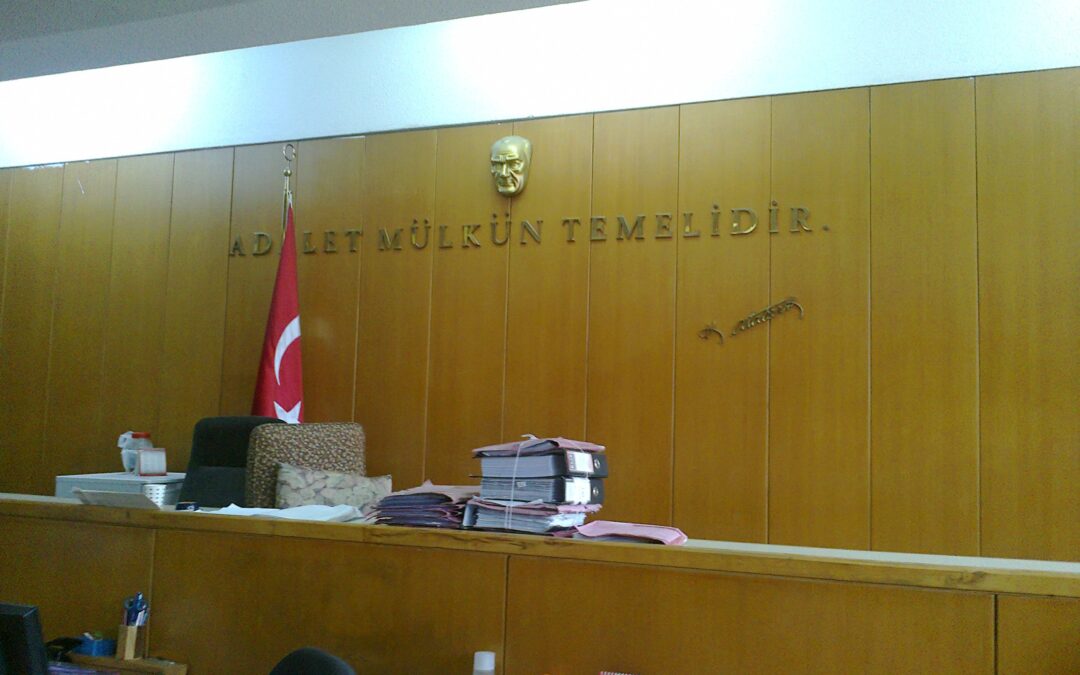
Feb 28, 2020 | News
The ICJ and the International Bar Association’s Human Rights Institute (IBAHRI) urge the Turkish Council of Judges and Prosecutors (CJP) to stop their investigation into the three judges of the Istanbul 30th Heavy Penal Court who, on 18 February 2020, acquitted the defendants in the Gezi Park trial due to a lack of evidence.
According to a statement from 30 Turkish bar associations, the sole reason for the investigation was the acquittal in the Gezi Park trial. The Council of Judges and Prosecutors, the body of self-governance of the judiciary, has the power to launch and take disciplinary action against judges, including disciplinary proceedings leading to removal from office.
“The launch of such an investigation is a further sign of the grave decline of the rule of law in Turkey”, said Massimo Frigo, Senior Legal Adviser for the ICJ Europe and Central Asia Programme “The disciplinary proceedings against these judges appear to be a direct interference in their decision-making power and will have a chilling effect on the independence of all members of the judiciary.”
“The role of the Council of Judges and Prosecutors should be to protect the independence of the judiciary – not to be an instrument of control and pressure against individual judges” said Massimo Frigo.
IBAHRI Co-Chair, the Hon Michael Kirby AC CMG, commented: “The IBAHRI and the ICJ jointly welcomed the acquittal of Osman Kavala and the other 15 defendants. Now, we condemn the re-arrest of Mr Kavala, continue to stand with the defendants, and call for Mr Kavala’s immediate release. We implore the Turkish Council of Judges and Prosecutors to reconsider the hugely damaging impact their inspection of the judges will have on the principles of judicial independence and the rights of lawyers, and to cease all action in this respect.”
The launch of this investigation occurred immediately after the acquittals in the Gezi trial, spurred by the vehement public protests by President Erdogan against the verdict.
30 Turkish Bar Associations have issued a statement calling for the resignation of the members of the Council of Judges and Prosecutors and considered this investigation as a violation of the principle of judicial independence under the Turkish Constitution.
Background
The defendants in the Gezi trial – with the exception of those not present in Turkey who will be tried separately – were acquitted on 18 February for lack of evidence. The ICJ and IBAHRI welcomed the acquittal after having observed all hearings of the trial. The very evening of the verdict, one of the defendants, Osman Kavala, was re-arrested on suspicion of “attempting to disrupt the constitutional order” connected to the failed coup attempt of 2016.
Osman Kavala has been in detention since 18 October 2017 pending trial on charges connected to the Gezi Park protests. The Gezi Park protests began in May 2013 as an effort by a group of environmentalists to save a park in central Istanbul from being rezoned, but soon grew into nationwide demonstrations. Police quelled the protest in Taksim Square with the use of tear gas and water cannons.
Contact:
Massimo Frigo, ICJ Senior Legal Adviser – e: massimo.frigo(a)icj.org – t: +41229793805
